Distributed SQL Sharding: How Many Tablets and at What Size?
Explore how database sharding works, how to handle corner cases correctly, and how to split tablets to save resources.
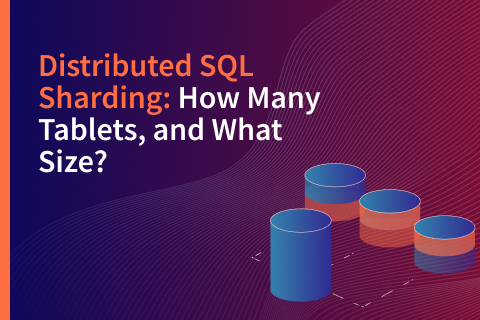
Explore how database sharding works, how to handle corner cases correctly, and how to split tablets to save resources.
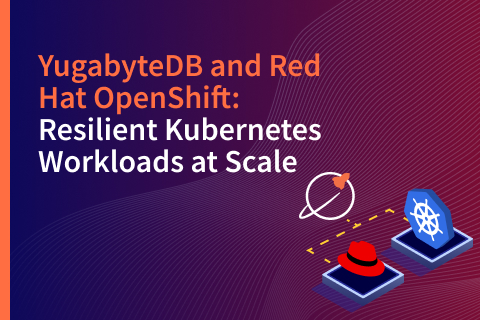
Kubernetes has become widely adopted in the Fortune 500. Many companies are now using the platform to run stateless and stateful applications on-premises or as hybrid cloud deployments in production. Of course, with any new technology, there are growing pains when running resilient Kubernetes workloads. But most executives and developers agree that the benefits far outweigh the challenges.
Data on the Kubernetes ecosystem is evolving rapidly with the rise of stateful applications. However,
…

We held our second annual Distributed SQL Summit (DSS) Asia annual conference on the 30th and 31st of March 2022, following great feedback from our initial event and user demand.
This two-day online conference was packed with fascinating presentations, discussions, and demos from customers, partners, and our own experts.
With 35 engaging sessions to choose from, and more than 40 speakers, the conference served as a hub for advocates, partners, customers,
…
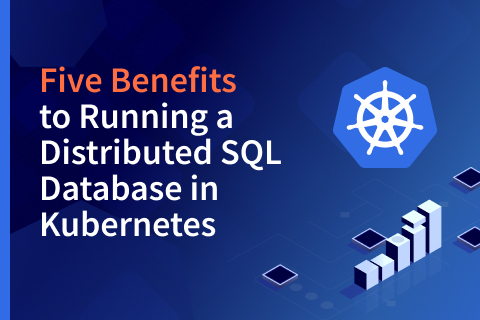
A distributed SQL database is a single logical relational database deployed on a cluster of servers. The database automatically replicates and distributes data across multiple servers. These databases are strongly consistent and support consistency across availability and geographic zones in the cloud.
At a minimum, a distributed SQL database has the following characteristics:
But should you run a distributed SQL database in Kubernetes?
…
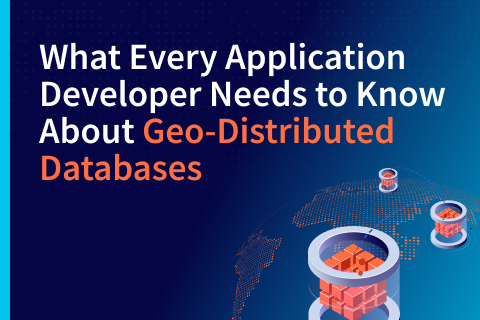
I’ve been working with distributed systems, platforms, and databases for the last seven years. Back in 2015, many architects began using distributed databases to scale beyond the boundaries of a single machine or server. They selected such a database for its horizontal scalability, even if its performance remained comparable to a conventional single-server database.
Now, with the rise of cloud native applications and serverless architecture, distributed databases need to do more than provide horizontal scalability.
…
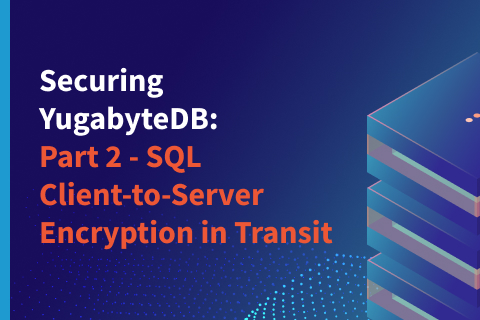
In the first post in this series, we covered how to secure YugabyteDB’s internal RPC protocol using the TLS encryption protocol, also referred to as server-to-server encryption in transit. In this post, we secure the communication between SQL clients and the PostgresQL query interface of YugabyteDB, also called client-to-server encryption in transit.
YugabyteDB—a 100% open source, distributed SQL database built to accelerate cloud native agility—stores important user and customer data at an organization.
…
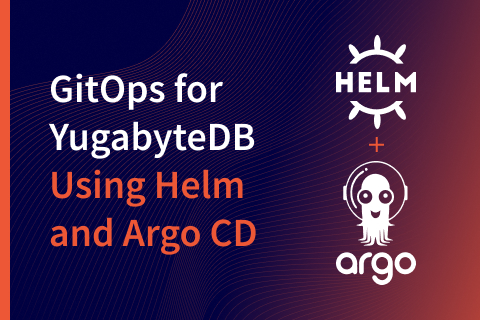
GitOps is an operational framework for declarative-driven systems such as Kubernetes. More specifically, it provides a set of best practices that converge the runtime state of the services with the declarative state defined in Git. On the other hand, Argo CD is a declarative, continuous delivery tool for Kubernetes. Argo CD follows the GitOps pattern of using Git repositories as the source of truth for defining the desired application state. Both tools can be used for automation workflows.
…
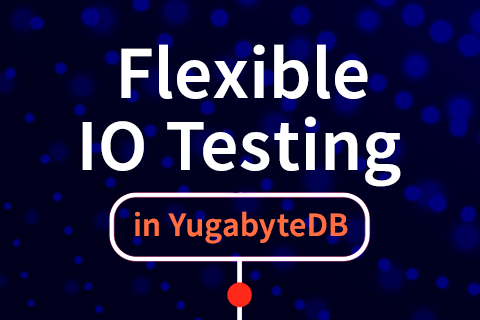
ybio is a PL/pgSQL based load generator for PostgreSQL and YSQL. This YugabyteDB-specific IO testing toolkit performs flexible IO testing to specific parts of the YugabyteDB infrastructure with no client installation. And because this toolkit is PL/pgSQL-based, it can also work on native PostgreSQL.
ybio is strongly inspired by Kevin Closson’s SLOB and pgio. Yugabyte Developer Advocate Franck Pachot took pgio and turned it into ybio.
…

Hello Everyone! I am Lakshmi, a tech product marketing intern for the Yugabyte Asia Pacific Japan (APJ) team. It has been my first month working at Yugabyte and I am thankful for the opportunity. Beyond my internship, I am a final year student at the NUS Business School in Singapore, specializing in Business Analytics.
Prior to joining Yugabyte APJ, I had always been interested in the world of startups.
…
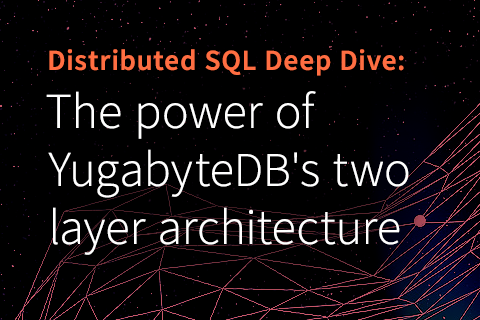
YugabyteDB is a 100% open source, distributed SQL database system. This single phrase expresses two distinct notions: a SQL database system, and a distributed database system. Historically, these notions were mutually exclusive. But current technology allows a single system to implement both notions. YugabyteDB does this with its two-layer architecture: an extensible query processing layer and a distributed document store.
In this blog post,
…